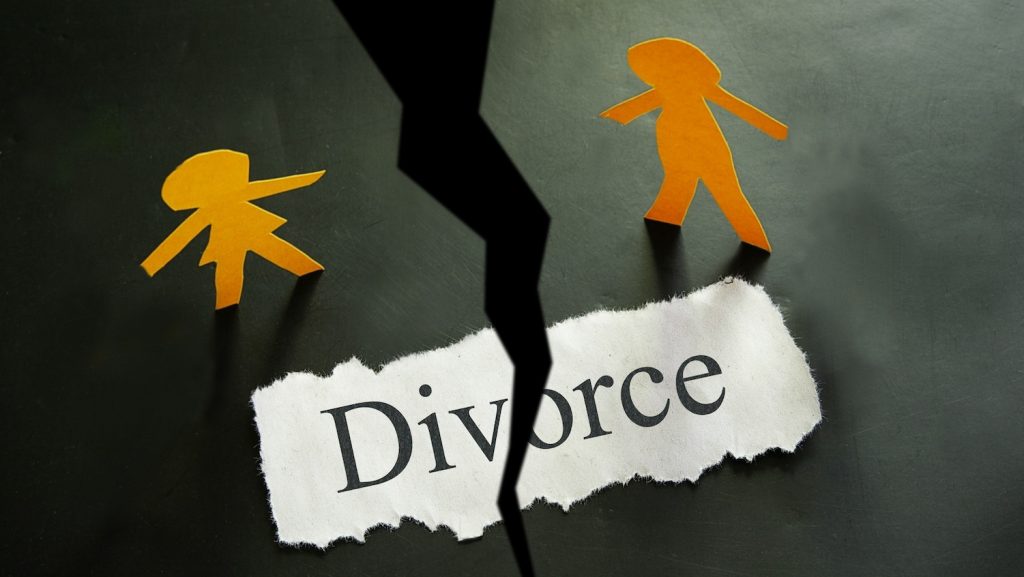Getting a divorce can be expensive, but it doesn’t have to be.
When I am asked by a potential client, “how much will a divorce cost?”, my answer is always the same.
It depends on how much agreement there is between the parties, how many times we will be required to go to Court, how much correspondence will be exchanged between the parties or their solicitors; in short, how much time will be involved.
Because time is money and going to Court to fight over various aspects of the break up is time consuming and, therefore, costly.
Disputes can be bitter, particularly when it comes to issues like custody, maintenance, property, access, pensions, etc.
Also, if there are other “new” partners involved it can be harder to keep things cool and civil.
In short, the more agreement there is between the parties the cheaper and less stressful it will be for all concerned.
Divorce by Consent
However, if the parties are agreed on all aspects of the divorce a divorce by consent can be obtained at a fraction of the cost of a contested divorce.
There are three circumstances where this can commonly occur:
- where the parties have not been married a long time and there are no children and no jointly owned property and
- where the parties have been married a long time but the children, if any, are grown up and the parties are agreed about going their separate ways and have arrangements agreed about joint assets/property/living arrangements and
- where the parties simply recognise that the marriage is over and the smartest thing to do is not engage in bitter fights and to move on with their lives.
Circuit Court rules
The Circuit Court rules for family law are set out here on this page. So if you are seeking a judicial separation or divorce the steps to be taken are those set out here.
These rules also contain the rules for claiming a nullity, for claiming relief after foreign divorce or separation, for a declaration of marital status, for property adjustment orders and other family law orders are claimed.
Rules 34 and 35 provide for divorce to be granted by notice of motion in default of appearance and/or defence and for the granting of divorce on agreed terms.
Documents required
To get the ball rolling to obtain your divorce you will need some basic legal documents for Court.
These will include:
- a Family Law Civil Bill
- an Affidavit of Means
- an Affidavit of Welfare if there are dependent children.
These will need to be filed in Court and served on the other spouse.
You will then need
- Affidavits of service
- a Letter of Consent to the divorce
- a Notice to Pension Trustees, if there is a pension held by one or both parties
- a draft Pension Adjustment Order
- a Notice of Motion for Judgment
- an Affidavit of Service of Notice of Motion.
Once the Notice of Motion for Judgment is filed in the Court office a date for the hearing of that motion, and the granting of the divorce, will be granted.
Requirements for a divorce
You can read about the requirements in greater detail here.
In summary,
- you must have lived apart from each other for 4 of the last 5 years (this has now changed to living apart for 2 of the last 3 years)
- there is no reasonable prospect of reconciliation
- there is proper provision made for the parties and the dependent children, if any.
Also, at least one of the spouses must have lived, or been domiciled, in Ireland in the 12 months prior to commencement of proceedings.
How quickly you will get your divorce will depend on where the proceedings are brought. The Dublin Circuit is the quickest as the Circuit Court sits every day to deal with divorce/judicial separation.
Outside of Dublin the sittings are much less frequent.
The proceedings can be brought where one of the parties resides or carries on a business, occupation, or profession.
You will need an original marriage certificate.
DIY Divorce
There are businesses which provide a service to allow you obtain a consent divorce.
It appears that they prepare the necessary documents and legal papers for you, based on your replies to their questions about your circumstances, and assuming both parties are agreeable to the divorce and its terms.
You then go to Court to file these papers and ultimately you go to Court to obtain your divorce.
If you and the other spouse are happy to do this, and there are no legal issues that you need advice on, this type of service might be suitable for you and what you want.
However, if you need legal advice, or would have concerns about going to Court yourself, or would have concerns about the procedures adopted in Court, or have any second thoughts about doing it yourself you can always instruct a solicitor to get professional advice and help.
